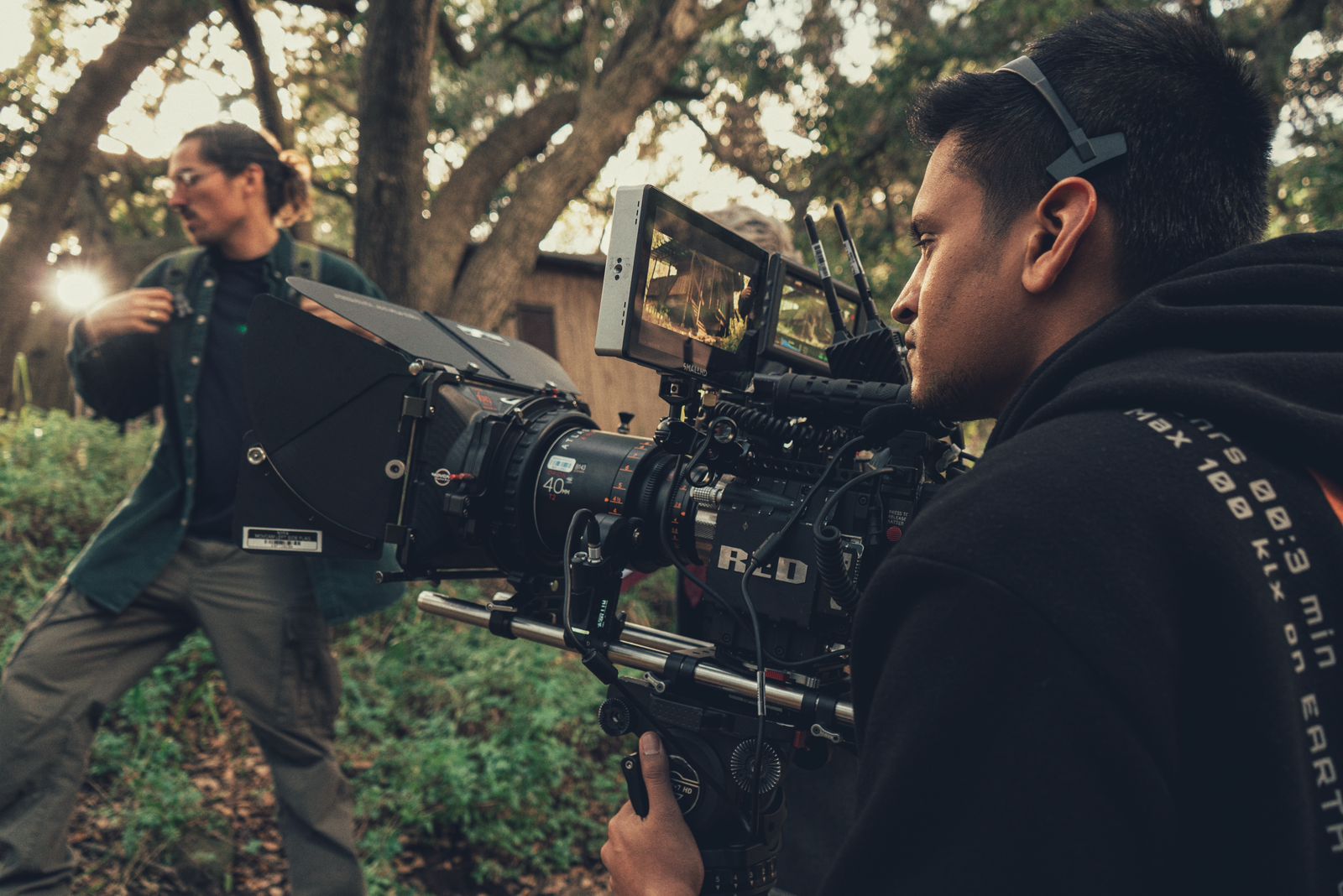Lifestyle
From India to Hollywood: Rishab Chandra’s cinematic brilliance is catching everyone’s attention

Rishab Chandra’s path to becoming a renowned cinematographer is nothing short of extraordinary. Hailing from Bangalore, India, this young visionary has carved out a niche for himself in the world of filmmaking, working with prestigious brands and renowned artists across the globe. Chandra’s passion for the art of visual storytelling was ignited at a young age when his mother brought home a DSLR camera on a whim. From that moment on, he became inseparable from the device, exploring the depths of wildlife photography until the age of 16.
It was then that a chance encounter with a club promoter propelled Chandra into the world of event cinematography. His work quickly gained recognition, and he soon found himself collaborating with some of the biggest names in the electronic music industry, including Skrillex, Tiesto, KSHMR, and DJ Snake. Chandra’s talent and dedication did not go unnoticed, and by the age of 20, he had already begun touring with renowned artists such as Nikhil Chinappa, Lost Stories, Tyga, Alan Walker, Krewella, Bonobo, and Troyboi, capturing the energy and excitement of music festivals like Sunburn, DGTL, and Ultra.
One of Chandra’s most significant achievements came when he became one of the few Indian filmmakers to have a music video released on Spinnin’ Records, a global record label signed with some of the biggest DJs in the world. The video, “Mantra” by Mariana Bo, showcased Chandra’s ability to seamlessly blend his cinematic vision with the pulsating rhythms of electronic music. But Chandra’s ambitions didn’t stop there. At the age of 23, he ventured into the world of luxury automotive brands, establishing himself as one of the youngest cinematographers in the country to work with prestigious names like Porsche and Lamborghini.
“Chandra’s work with these iconic brands has been a testament to his exceptional skills and creative vision,” says industry experts. “His ability to capture the essence of these luxury vehicles, from their sleek lines to their raw power, is truly remarkable.” Chandra’s journey then took him to Los Angeles, where he spent a year studying at the prestigious New York Film Academy. It was during this time that he began working on numerous short and feature films as a Director of Photography, gaffer, and camera operator.
As Chandra’s journey continues to unfold, his story serves as an inspiration to aspiring filmmakers and cinematographers around the world. With a relentless pursuit of excellence and a deep passion for his craft, this remarkable young talent from Bangalore has truly made his mark on the global stage.
Lifestyle
When Seasons Shift: Dr. Leeshe Grimes on Grief, Loneliness, and Finding Light Again

Some emotional storms arrive without warning. A sudden change in weather, a holiday approaching, or even a bright sunny day can stir feelings that don’t match the world outside. For many people, the hardest seasons are not defined by temperature; they are defined by what’s happening inside, where grief and loneliness often move quietly.
This is the emotional terrain where Dr. Leeshe Grimes has spent her career doing some of her most meaningful work. As a psychotherapist, registered play therapist, retired U.S. Army combat veteran, and founder of Elevated Minds in the DMV area, she understands how deeply seasonal shifts and unresolved grief can affect people. Her upcoming books explore this very space, guiding readers through the emotional weight that can appear during different times of the year.
What sets Dr. Grimes apart is her ability to see clearly what many people overlook. Seasonal depression, for example, is usually tied to winter months. But she often sees it appear during warm, bright seasons, the times when the world seems happiest. For someone already grieving or feeling disconnected, watching others travel, celebrate, or gather can create its own kind of heaviness. Sunshine doesn’t always lift the mood; sometimes it highlights what feels missing.
The same misunderstanding surrounds grief. Society often treats it as a short-term experience with predictable phases and a clean ending. But in her practice, Dr. Grimes sees how grief keeps evolving. It doesn’t disappear on a timeline. It weaves itself into routines, memories, and milestones. People learn to carry it differently, but they rarely leave it behind completely. And that’s not failure, it’s human.
Her approach to mental health centers on truth rather than pressure. She encourages clients to acknowledge the emotions they try to hide: sadness that lingers longer than expected, moments of joy that feel out of place, and the waves of loneliness that return even when life seems stable. Instead of pushing for quick recovery, she focuses on helping people understand how emotions shift and how to care for themselves through those changes.
Much of her insight comes from her military years, where she witnessed the emotional toll of loss, transition, and constant survival. She saw how people continued functioning while carrying pain that had nowhere to go. That experience shaped her belief that healing requires space, space to feel, to speak, and to move through emotions without judgment.
In her clinical work today at Elevated Minds, she encourages people to build small, steady habits that anchor them during difficult seasons. Journaling helps them recognize patterns and name what feels heavy. Community support breaks the cycle of isolation. Therapy creates a place where emotions don’t have to be minimized or explained away. And intentional routines, daily sunlight, mindful breaks, and calm evenings help rebuild emotional balance.
Her upcoming books expand on these ideas, offering practical guidance for navigating both grief and seasonal depression. She focuses on helping readers understand that healing is not about escaping pain. It’s about learning how to live with it in a healthier way, honoring memories, acknowledging loneliness, and still allowing room for moments of light.
What makes Dr. Leeshe Grimes a compelling voice in mental health is her ability to bring language to experiences that many struggle to explain. She reminds people that emotional seasons don’t always match the weather and that there is no single path through grief. But within those shifts, she believes there is always a way forward.
The seasons will continue to change. And with the right tools, compassion, and support, people can change with them, finding steadiness, softness, and light again, one step at a time.
-

 Tech5 years ago
Tech5 years agoEffuel Reviews (2021) – Effuel ECO OBD2 Saves Fuel, and Reduce Gas Cost? Effuel Customer Reviews
-

 Tech6 years ago
Tech6 years agoBosch Power Tools India Launches ‘Cordless Matlab Bosch’ Campaign to Demonstrate the Power of Cordless
-

 Lifestyle7 years ago
Lifestyle7 years agoCatholic Cases App brings Church’s Moral Teachings to Androids and iPhones
-

 Lifestyle5 years ago
Lifestyle5 years agoEast Side Hype x Billionaire Boys Club. Hottest New Streetwear Releases in Utah.
-

 Tech7 years ago
Tech7 years agoCloud Buyers & Investors to Profit in the Future
-

 Lifestyle5 years ago
Lifestyle5 years agoThe Midas of Cosmetic Dermatology: Dr. Simon Ourian
-

 Health7 years ago
Health7 years agoCBDistillery Review: Is it a scam?
-

 Entertainment7 years ago
Entertainment7 years agoAvengers Endgame now Available on 123Movies for Download & Streaming for Free
